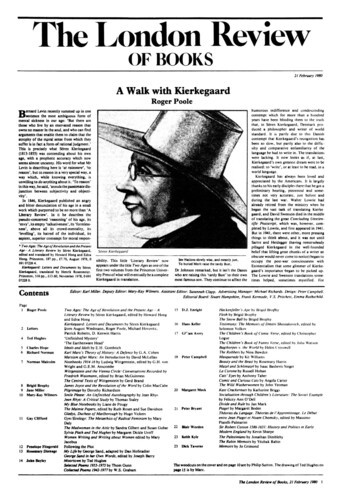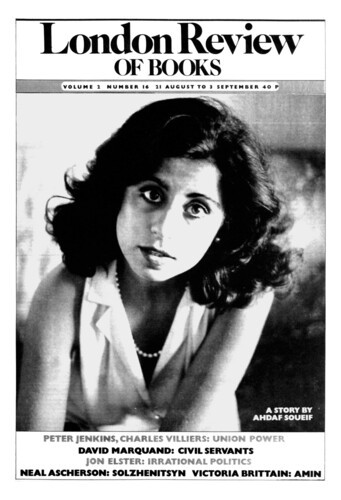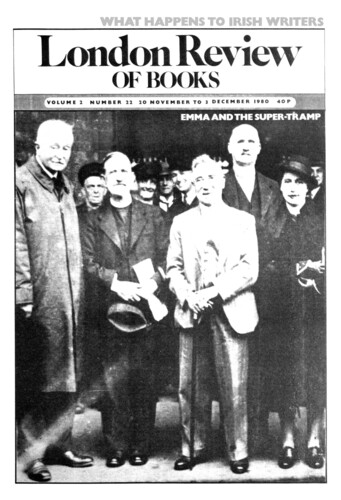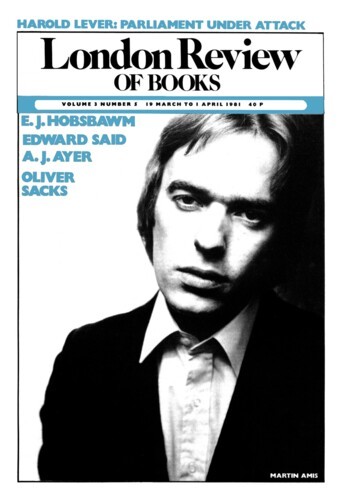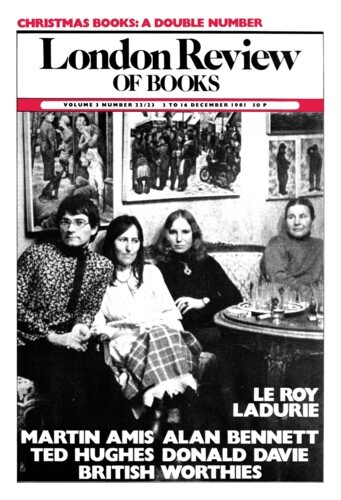Stevie Smith said that she was straightforward, but not simple, which is a version of not waving but drowning. She presented to the world the face which is invented when reticence goes over to the attack, and becomes mystification. If you visited Blake and were told not to sit on a certain chair because it was for the spirit of Michelangelo, or if Emily Dickinson handed you a single flower, you needed time to find out how far the mystification was meant to keep you at a distance, and to give you something to talk about when you got home. Eccentricity can go very well with sincerity, and, in Stevie’s case, with shrewdness. She calculated the effect of her collection of queer hats and sticks, her face ‘pale as sand’, pale as her white stockings, and also, I think, of her apparent obsession with death. She was interested in death, and particularly in its willingness to oblige, she had survived a suicide attempt in 1953, she was touched by the silence of the ‘countless, countless dead’: but when in her sixties she felt the current running faster and ‘all you want to do is to get to the waterfall and over the edge,’ she still remained Florence Margaret Smith, who enjoyed her life, and, for that matter, her success. Her poetry, she told Anna Kallin, was ‘not at all whimsical, as some asses seem to think I am, but serious, yet not aggressive, and fairly cheerful though with melancholy patches’. The melancholy was real, of course. For that reason she gave herself in her novels the name of Casmilus, a god who is permitted to come and go freely from hell.
Stevie Smith said that she was straightforward, but not simple, which is a version of not waving but drowning. She presented to the world the face which is invented when reticence goes over to...
